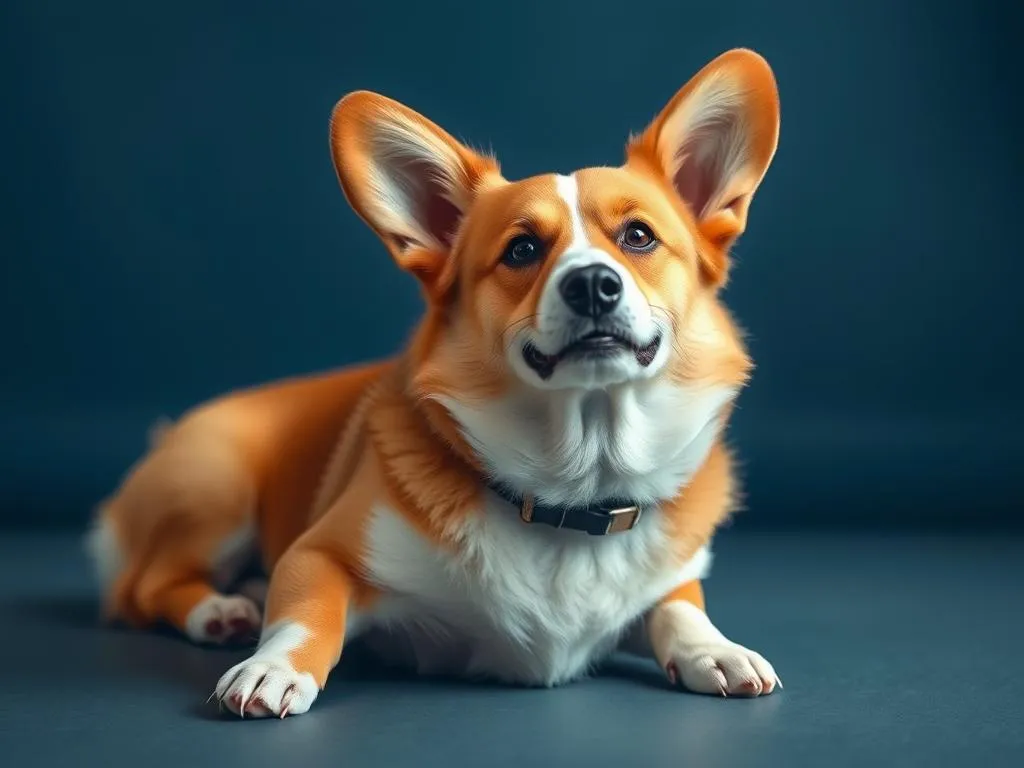
Introduction
Dog breeds have long captivated the hearts and homes of many, becoming beloved companions across the globe. Understanding the unique characteristics of different breeds not only enhances our appreciation for them but also informs us about their care and behaviors. Among the myriad of dog breeds, Corgis stand out due to their distinctive traits and charming personalities. This blog post will delve into the intriguing topic of why does my corgi sploot so much, exploring the reasons behind this endearing behavior and what it signifies about this playful breed.
Understanding Dog Breeds
Definition of Dog Breeds
At its core, a dog breed is a specific strain of domestic dog that shares particular characteristics, such as physical traits, temperament, and behaviors. Breeding practices date back thousands of years, often aimed at enhancing certain traits for specific functions, such as herding, hunting, or companionship. Today, dog breeds are classified into various categories, including working, sporting, terrier, hound, toy, and herding, among others.
Popular Dog Breeds
The popularity of dog breeds varies across regions and cultures, but some breeds consistently top the charts. Here’s a brief look at a few popular breeds:
- Labrador Retriever: Known for their friendly demeanor, Labs are excellent family dogs and service animals.
- German Shepherd: Intelligent and versatile, they excel in police and military roles.
- Golden Retriever: Affectionate and patient, they are often therapy dogs.
- Bulldog: Recognized for their loose, wrinkled skin and distinctive pushed-in nose, Bulldogs are gentle and loving companions.
- Poodle: Available in standard, miniature, and toy sizes, Poodles are known for their intelligence and hypoallergenic coats.
Each breed brings unique qualities that cater to different lifestyles and preferences, emphasizing the importance of selecting a breed that fits your home and personality.
The Corgi Breed
History of Corgis
Corgis, particularly the Pembroke and Cardigan varieties, have a storied history rooted in Wales. The Pembroke Welsh Corgi is often associated with the British royal family, especially Queen Elizabeth II, who has owned more than 30 during her reign. They were originally bred for herding cattle, thanks to their agility and intelligence. In contrast, the Cardigan Welsh Corgi has an older lineage, believed to have descended from the Swedish Vallhund. Both types have served as loyal companions and hardworking herding dogs.
Physical Characteristics
Corgis are easily recognizable due to their unique physical features. They are small yet sturdy dogs with short legs and long bodies. Typically weighing between 25 to 30 pounds, they have a double coat that can come in various colors, including red, fawn, and black and tan. Their expressive faces and large ears add to their charm, making them one of the most adored breeds.
Corgi Temperament and Behavior
Corgis are known for their lively and affectionate nature. They are highly social dogs that thrive on interaction with humans and other animals. Their intelligence makes them quick learners, but they can also be a bit stubborn, requiring consistent training. Corgis are playful and energetic, often engaging in activities like fetching or herding to expend their energy.
Understanding Splooting
What is Splooting?
Splooting is a term used to describe a specific resting position that many dogs assume, where they lie flat on their bellies with their legs stretched out behind them. This adorable pose can be a delightful sight for any dog owner and is often accompanied by a relaxed demeanor.
Reasons Dogs Sploot
Dogs sploot for various reasons, including:
- Natural Stretching Behavior: Like humans, dogs stretch to relieve tension in their muscles and joints.
- Comfort and Relaxation: Splooting can indicate that a dog feels safe and comfortable in its environment.
- Implications for Joint Health and Flexibility: The splooting position may help dogs maintain joint flexibility and muscle relaxation, which can be particularly beneficial for breeds like Corgis with unique body structures.
Why Does My Corgi Sploot So Much?
Corgi Anatomy and Splooting
Given their unique body structure, Corgis are particularly prone to splooting. Their short legs and long bodies allow them to easily adopt this position, providing a comfortable way to relax. The anatomical design of Corgis, with their compact torsos, makes splooting not only feasible but also a natural choice for them when seeking a good resting position.
Common Reasons for Excessive Splooting
Excessive splooting in Corgis can arise from several factors:
- Variations in Individual Behavior: Just like humans, dogs have their own personalities. Some Corgis may simply prefer splooting as their go-to resting position.
- Potential Health Considerations: While splooting is generally harmless, it could indicate underlying issues such as hip dysplasia or other joint problems, especially if accompanied by signs of discomfort.
- Environmental Factors: A comfortable, familiar environment may encourage Corgis to sploot more frequently. If they feel safe and relaxed, they are more likely to display this behavior.
When to be Concerned
While splooting is often harmless, there are instances when it may warrant concern. If your Corgi exhibits signs of discomfort, such as whimpering, reluctance to move, or changes in appetite, it may be time to consult a veterinarian. Similarly, if splooting is accompanied by limping or difficulty in standing, these could be signs of a more serious health issue.
Tips for Corgi Owners
Encouraging Healthy Splooting
To ensure that your Corgi enjoys healthy splooting, consider incorporating the following activities and exercises into their routine:
- Regular Playtime: Engage in activities that promote physical and mental stimulation, such as fetch or agility training.
- Structured Walks: Daily walks are crucial for maintaining a healthy weight and promoting joint health.
- Stretching Sessions: Encourage your Corgi to stretch after play, as this can aid in flexibility and muscle health.
Monitoring Health
Keeping an eye on your Corgi’s health is essential. Regular veterinary check-ups can help identify any potential issues early on. Additionally, monitoring their weight and diet can significantly impact their overall well-being. A balanced diet tailored to your dog’s size, weight, and activity level will help maintain a healthy body and promote a happy splooting experience.
Connecting with Other Corgi Owners
Joining online communities or local Corgi groups can provide valuable insights and support. Sharing experiences and advice with fellow Corgi owners can enhance your understanding of the breed and help you navigate any concerns you may have regarding your pet’s behavior and health.
Conclusion
Understanding why does my corgi sploot so much provides valuable insights into the behavior of this charming breed. Corgis, with their unique physical characteristics and playful personalities, bring joy to countless households. By appreciating their quirks and ensuring their health and well-being, owners can foster a loving relationship with their furry companions. Observing and embracing the delightful behaviors of Corgis, including their adorable splooting, is part of the joy of dog ownership. Each sploot is a testament to their comfort and happiness, reminding us of the simple pleasures that come with having a pet.









